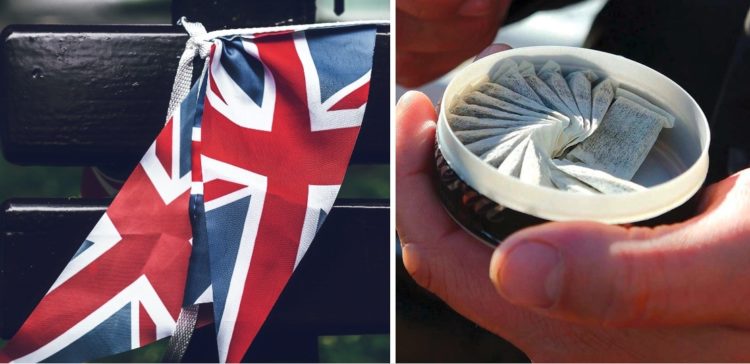
Fresh report slams Khan review, renews calls for UK to legalise snus
Increased accessibility to low-risk alternatives like snus and nicotine pouches, rather than prohibition advocated by the Khan review, are key to getting UK smokers to kick the habit, according to a fresh report that goes on to call UK harm reduction messaging a “woeful failure”.
The report, published by the UK-based Institute of Economic Affairs and authored by Christopher Snowdon, questions the logic of the recently published review of UK tobacco policy.
Conducted by Dr. Javed Khan at the behest of the Department of Health, the report – formally entitled “The Khan review: making Smoking Obsolete” – includes a range of “prohibitionist recommendations” and “supply-side interventions” designed to minimize the appeal of smoking.
Khan review ‘misunderstands obsolescence’
Among other things, the Khan review includes proposed tobacco tax increases of over 30 percent and banning the depiction of tobacco use on TV before 9pm.
“This misunderstands the nature of obsolescence. Popular products generally only become obsolete when a better alternative comes along,” Snowdon writes in the new IEA report.
“So long as demand exists, neo-prohibitionist policies will result in endemic black market activity, crime, and secondary poverty without coming close to eradicating smoking.”
‘A woeful failure’
The IEA report also criticizes the fact that so many Britons are misinformed about the health impacts of vaping and nicotine.
“Consumer ignorance is a major barrier to the consumption of low-risk nicotine products,” the report states.
The report cites data from Public Health England showing that 40 percent of smokers falsely believe nicotine causes cancer and that the number of smokers who wrongly believe vaping is as or more dangerous than smoking rose by 17 percent between 2014 and 2020.
“This represents a woeful failure of public health messaging,” according to the report, which argues that it’s imperative to “give the public accurate information about the relative risks of novel nicotine products and the (very low) risks of nicotine itself”.
Harm reduction message going ‘backwards’
To remedy the situation, the report puts forward a number of concrete measures, and chief among them is combatting the misinformation that plagues public debate about tobacco policy and public health.
“The UK has generally regulated e-cigarettes in a responsible manner, achieving public health objectives while respecting personal freedom,” Snowdon writes in the report.
“But public understanding of the relative risks of vaping has gone backwards in recent years and there is more to be done.”
Specifically, the IEA urges the Office for Health Improvement and Disparities (OHID) to continue publishing reports about vaping and alternative nicotine products similar to those produced by Public Health England, which closed in 2021.
The report suggests launching a government-backed campaign challenging misinformation, as well as collaboration with the British Medical Association and the Royal College of General Practitioners to ensure doctors are “well informed” about the benefits of e-cigarettes and other low-risk nicotine products.
UK should legalise snus
Rather than the Khan review’s “tax-and-ban-approach”, the report urges the UK to lift the ban on snus, which is a holdover from EU membership. Now that the UK is free to set its own tobacco policies, the IEA recommends repealing the 1989 Oral Snuff (Safety) Regulations Act and the 1992 Tobacco for Oral Use (Safety) Regulations.
At the same time, the IEA report wants to see regulation of nicotine pouches to better prevent sales to minors. In addition, the report urges policymakers should resist banning flavours or raising taxes on low-risk nicotine products.
“The economic evidence is clear that taxes on vaping lead to more smoking,” the report states.
“Cigarettes and e-cigarettes are direct substitutes. As a general rule, anything that makes vaping less appealing will make smoking relatively more appealing.”
Furthermore, the report suggests the government commission research into the relative risks of nicotine pouches and smoking similar to previous research carried out with vaping.
“With better education and a regulatory system that fosters innovation, smoking may one day become genuinely obsolete,” the report concludes.




